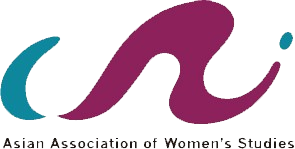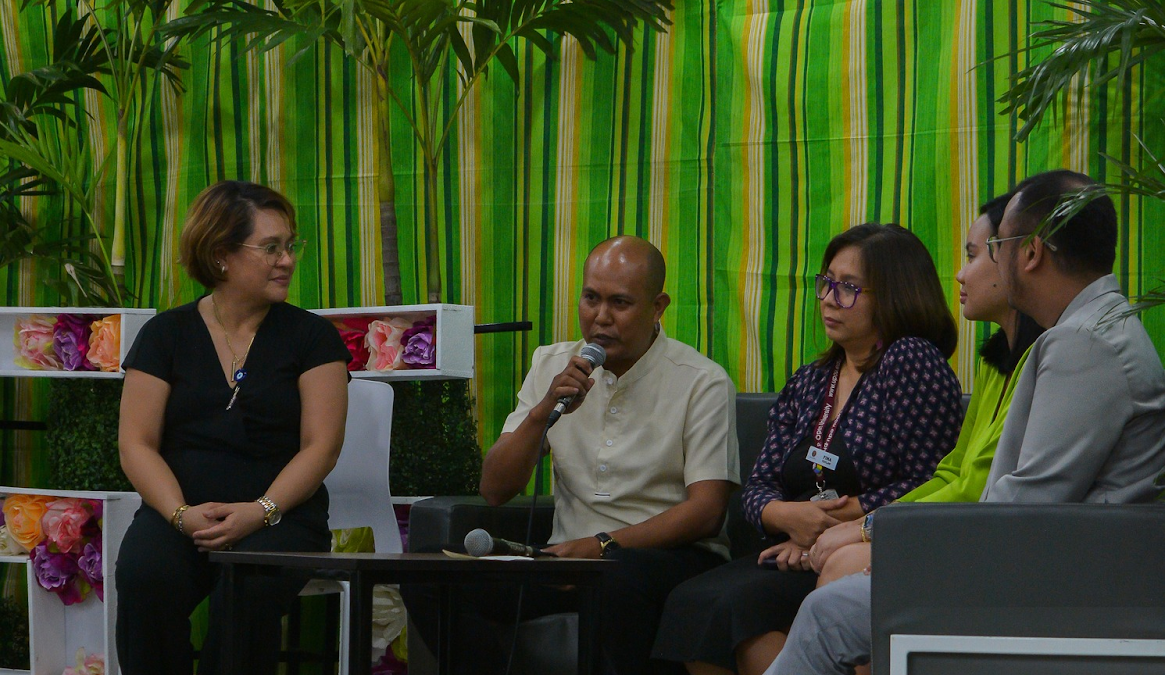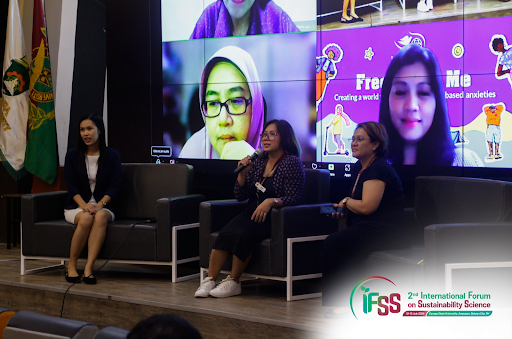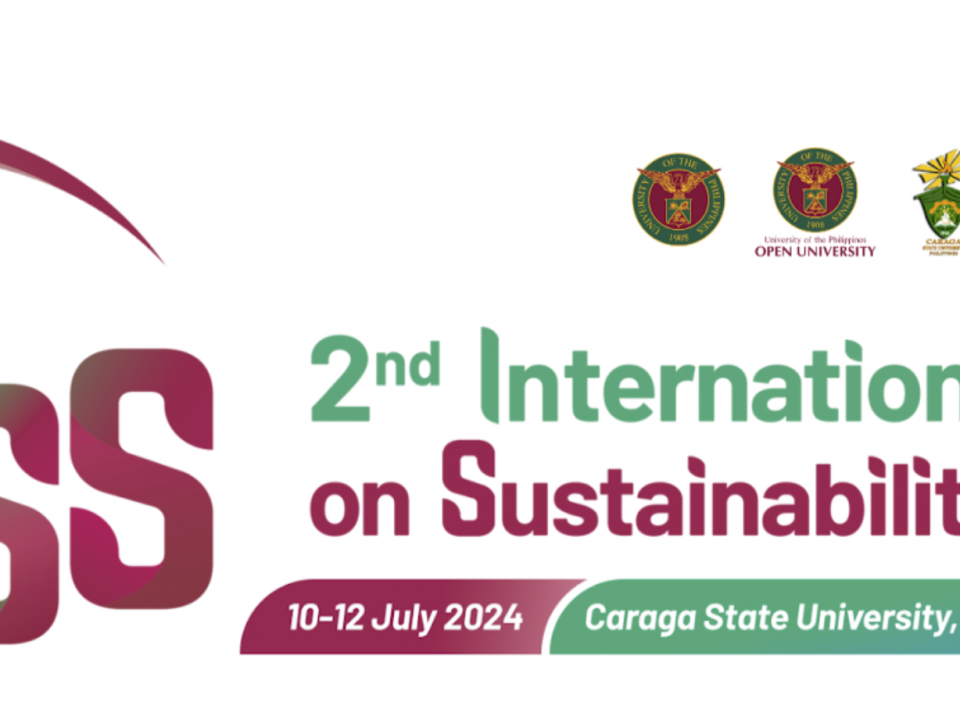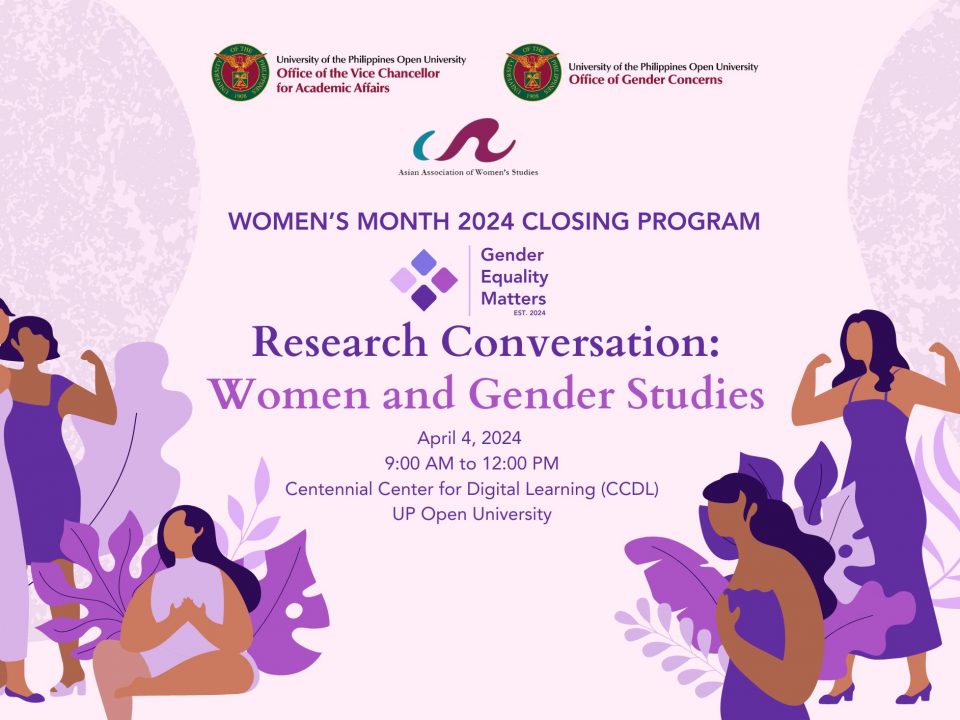
Academics, Feminists, and Researchers Present their Studies and Experiences on Gender Equality, Diversity, and Social Inclusion (GEDSI) in an International Conference
July 18, 2024IFSS 2024: Parallel Session 7 with the theme Gender Inclusivity and Diversity for Sustainable Development
Written By Faye Anjeli Lopez Edited by Dr. Maria Lourdes T. Jarabe
The 2nd International Forum on Sustainability Science (IFSS 2024) with the theme “Climate Resilience: Bridging Science, Policy, and Practice,” was held last July 10-12, 2024 at the Caraga State University and online. The conference was co-organized by the Asian Association of Women’s Studies which is an organization that serves as a forum to promote and discuss feminist education and research in Asia and the UPOU – Office of Gender Concerns. The event aimed to provide a platform for professionals, academics, researchers, and practitioners to converge, exchange ideas, and co-create knowledge to address pressing sustainability challenges.
The final Parallel Session of the IFSS 2024, Parallel Session 7: “Gender Inclusivity and Diversity for Sustainable Development” was held on July 11, 2024, from 1:00 to 2:30 PM at the Activity Center, third floor of Caraga State University and Online. This final parallel session was moderated/chaired by Dr. Maria Lourdes T. Jarabe, program chair of the UP Open University’s FMDS – Diploma in Women and Development, Program Development Associate of Office of Gender Concerns, and Secretary General of the Asian Association of Women’s Studies. The parallel session featured a series of presentations that delved into the intersection of gender, sustainability, and community resilience.
The first presenter, Carmelito C. Valdez, with his presentation entitled “Strengthening Agro-Ecological Resilience in the Alimit Watershed through Indigenous Knowledge Systems and Practices,” highlighted his research on the resilience of communities in the Alimit Watershed against climate change. Facing frequent landslides and weather extremes like typhoons and El Niño, these communities employ diverse socio-economic strategies to cope, including post-disaster crop harvesting, animal sales, property mortgaging, and indigenous feed creation like “Binugbog” for hogs. Valdez emphasized the critical role of indigenous knowledge systems in fostering agroecological resilience, blending cultural heritage with sustainable practices.
The second presenter, Gerald Salas, introduced their study “Promoting Sustainability through Community Engagement: Local Knowledge, Attitudes, and Practices on Conservation and Tourism in Mt. Arayat Protected Landscape.” This research involved communities from Magalang and Arayat, focusing on conservation education, sustainable livelihoods, and community empowerment through activities like “Empowering Communities: Conservation Strategies and Livelihood Opportunities in Mt. Arayat.” Salas underscored the significance of community participation in enhancing sustainability and protecting Mt. Arayat’s biodiversity-rich landscape.
The third presenter, Lilibeth S. Languido, presented findings on gender mainstreaming in Philippine AgriTech innovation, addressing gender disparities in leadership roles and advocating for gender-responsive agricultural practices. Her study highlighted the importance of inclusive policies to empower women in AgriTech, enabling their full participation and contribution to sectoral growth and sustainability.
The fourth presenter, AAWS President, OGC Director, and D/MSW Program Chair, Dr. Finaflor F. Taylan, and Denise Therese Anne Palisoc, with their study entitled “Course review in UP Open University towards inclusivity and gender equality: An exploratory study” led the discussion on the Course Review Project at UPOU, evaluating courses for gender responsiveness and promoting inclusivity within the educational framework. Their initiative aims to institutionalize gender considerations in course design and delivery, supported by ongoing gender sensitivity orientations and the impactful Massive Open Online Courses which has seen enrollment from 18,000 learners, and with more than 17,000 this year.
The fifth presenter, April Rose Itura Nalangan, explored the role of ASEAN frameworks in safeguarding women seafarers’ rights in her study, “Navigating Gendered Waters.” Highlighting challenges and opportunities in the maritime sector, Nalangan emphasized education as key to empowering women seafarers and promoting gender equality in naval operations. She focused on the Philippines’ maritime industry, where only 1.16% of employed seafarers are women, underscoring the need for targeted policies and educational initiatives.
Lastly, Asia V. Castelo discussed the struggles faced by environmental defenders in Barangay Andap and Dong Mafai Village, advocating for their protection and justice amidst challenges from legislative measures and government actions. Castelo emphasized the critical role of environmental defenders in safeguarding natural resources and called for comprehensive reforms to ensure their safety and rights.
The session concluded with a Q&A, where presenters addressed inquiries on gender roles within their respective fields, further enriching discussions on inclusivity, equity, and sustainability in diverse industries. Valdez and Salas were queried about gender distribution within the agriculture and tourism sectors, highlighting the nuanced roles of men and women in different activities. Nalangan answered questions about the division of roles between cargo vessels and cruise ships in the maritime sector. She explained the rationale behind selecting Thailand and Singapore for comparison in her research. These insights deepened the understanding of gender dynamics and underscored ongoing dialogues on inclusive practices and equitable opportunities in various industries.
The parallel session showcased diverse research and initiatives that emphasized the importance of gender mainstreaming in various sectors, from climate resilience and conservation to AgriTech innovation and maritime operations. Each presentation highlighted the critical role of inclusive policies and community engagement in fostering sustainable development. Through the lens of gender inclusivity, the parallel session presenters explored how empowering women and integrating gender considerations can lead to a more resilient and equitable practice.
